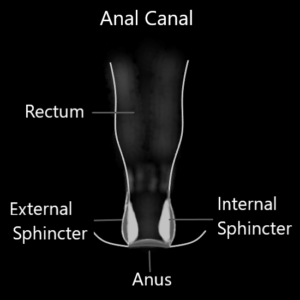Human Anus - Structure - Function
what is human anus
The anus is the external opening at the very end of the digestive tract, through which feces are expelled from the body. It is the final segment of the gastrointestinal tract, connecting the rectum to the outside .
The anus is a crucial part of the human excretory system, playing a vital role in defecation and maintaining fecal continence.

Structure of the Anus
The anal region comprises the anal canal and the perianal skin.
Anal Canal:
This is a tube approximately 4 cm long that connects the anus to the rectum . It passes through the pelvic floor and is normally collapsed by surrounding muscles except during defecation . The junction between the rectum and the anal canal is known as the anorectal line .
Anal Sphincters:
Two ring-like muscles, the internal and external anal sphincters, control the opening and closing of the anus.
The internal anal sphincter is an involuntary muscle, formed by a thickening of the circular smooth muscle of the bowel wall, and surrounds the upper two-thirds of the anal canal . It relaxes automatically when the rectum is full.
The external anal sphincter is a voluntary muscle that surrounds the lower two-thirds of the anal canal, overlapping with the internal sphincter. It is under conscious control, allowing individuals to hold in feces until a suitable time for defecation.
Internal Lining:
The upper part of the anal canal is lined by a mucous membrane with longitudinal folds called anal columns. These folds are joined at their inferior ends by anal valves, which collectively form the pectinate line (or dentate line). This line is a significant anatomical landmark, dividing the anal canal into upper and lower parts with different embryological origins, nerve supplies, and vascular supplies. Below the pectinate line, the lining transitions to non-keratinized stratified squamous epithelium, eventually becoming true skin at the intersphincteric groove.
Perianal Skin:
This is the skin surrounding the anus, composed of squamous cells similar to skin elsewhere on the body.
Function of the Anus
The primary function of the anus is to facilitate bowel movements. When the rectum fills with feces, nerves trigger the urge to defecate. The internal anal sphincter relaxes, allowing feces to enter the anal canal. When ready, the external anal sphincter relaxes, and coordinated muscle contractions push the feces out of the body. The mucous lining secretes mucus to lubricate the passage, ensuring smooth expulsion.
Beyond defecation, the anus also plays a role in preventing infections from entering the body.
Clinical Significance
The anus can be affected by various medical conditions, including:
Hemorrhoids: Swollen blood vessels in the anus or rectum.
Anal Fissures: Tears in the anal lining that can cause pain and bleeding.
Anal Abscesses/Fistulas: Infections of anal glands leading to pus pockets (abscesses) or abnormal tunnel-like passageways (fistulas).
Anal Cancer: A type of cancer that develops in the anal canal, often squamous cell carcinoma.
Anal Incontinence: Difficulty controlling bowel movements due to issues with anal sphincter muscles.
STIs: Sexually transmitted infections can affect the anus, especially through anal sex.
Regular hygiene, a high-fiber diet, and safe sexual practices are important for maintaining anal health . Any persistent symptoms like pain, bleeding, itching, or changes in bowel movements should be evaluated by a healthcare provider.
The anus is the external opening at the very end of the digestive tract, through which feces are expelled from the body. It is the final segment of the gastrointestinal tract, connecting the rectum to the outside .
The anus is a crucial part of the human excretory system, playing a vital role in defecation and maintaining fecal continence .
Read more :
- -Anus Anatomy-male-female
- -Is a woman's anus different from a man's anus?
- -My anus is too small for thick ,big penis
- -Can a big thick penis tear the anus?
- -Is a woman's anus tighter than a man's ?
- -Can anus accommodate a longer penis than the vagina?
- -Why is Anus tighter than vagina?
- -why anus not produce lubrication like vagina during sex?
- -Is Anus Licking Safe?
- -Is it safe to push water inside anus for cleaning before anal sex (anal douching)?
- -Is it safe to have sperm in the anus during intercourse?
- -Can sperm survive in the rectum(anus), and what are the consequences?
- -How long can sperm live in the rectal(anus) environment?
- -What physiological differences cause the anus to remain dry during intercourse?